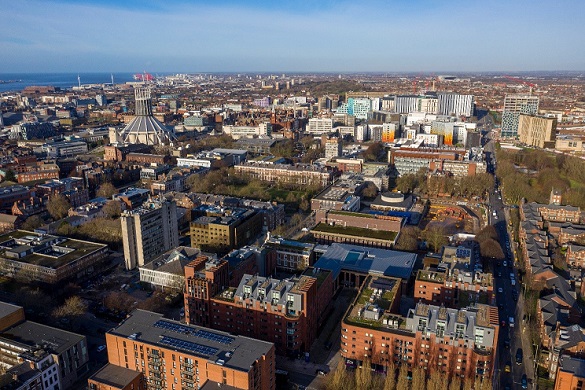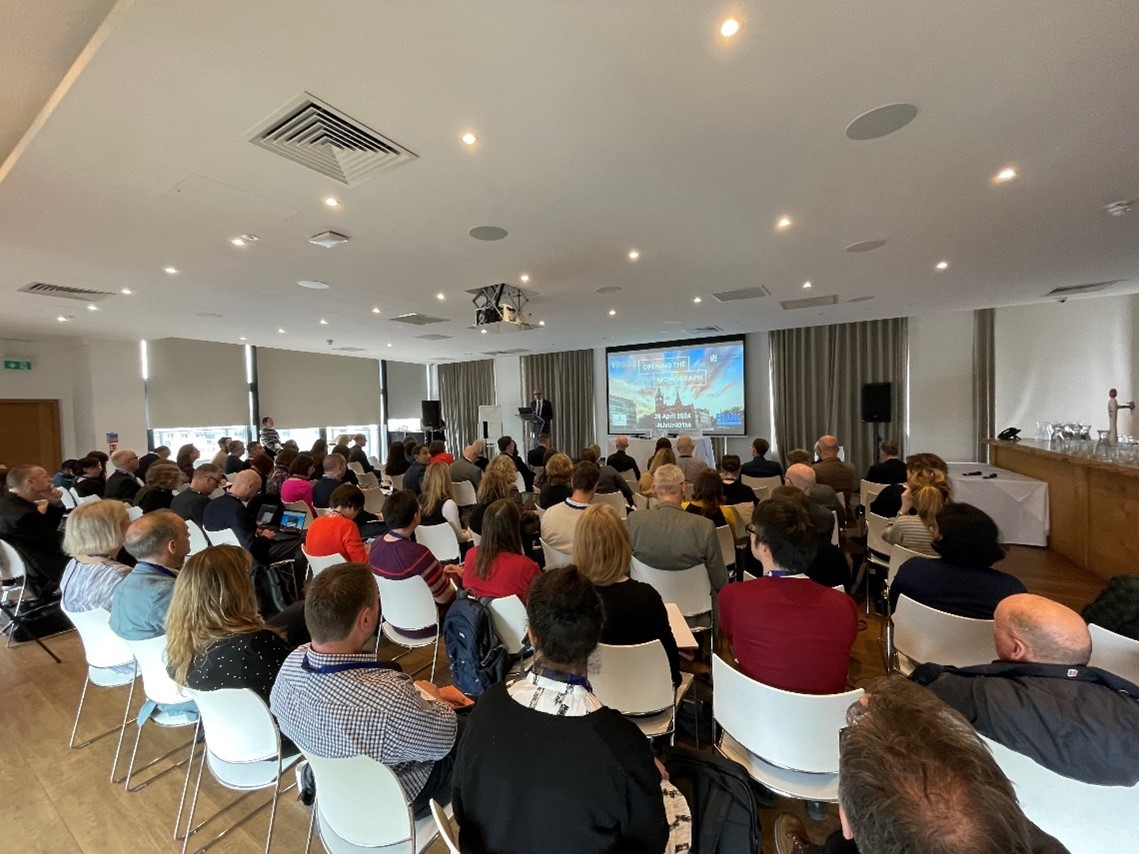
The first event of its kind, the symposium provided a reflective environment to consider the changing nature of open scholarship and the role of the academic monograph.
Organised by the Faculty of Humanities and Social Sciences, Libraries, Museums and Galleries, Liverpool University Press, UK Research Innovation (UKRI) and Research Libraries UK (RLUK), the event brought together publishers, librarians, funders and academics from around the globe.
The monograph has long held a central place in the scholarly landscape across multiple disciplines, particularly the arts, humanities, and social sciences. The combination of the growth of electronic content, open-access monograph publishing and changing funder requirements provide opportunities to rethink the monograph’s future. This includes the recent implementation of the UKRI Open Access policy for longform publications.
Keynote speakers
Opening the conference, Pro Vice Chancellor for Research and Impact Professor Anthony Hollander welcomed delegates and emphasised the importance of the monograph as a significant output of scholarly research. Professor Christopher Smith, Executive Chair of the Arts and Humanities Research Council (AHRC) then gave an insightful talk about the challenges for the monograph in the digital age and how to balance those with the benefits that technology can bring – as well as the further work there is to do on preserving scholarship digitally. Executive Pro Vice Chancellor for the Faculty of Humanities and Social Sciences Professor Fiona Beveridge facilitated discussion points and questions from the audience.
Associate Pro-Vice Chancellor for Research Culture and Postgraduate Research Professor Georgina Endfield led a provocations panel, inviting contributions from Dr Steven Hill, Director of Research at Research England, Dr Rachel Bruce, Head of Open Research at UKRI, Anthony Cond, Chief Executive of Liverpool University Press and Dr David Prosser, Executive Director of Research Libraries UK. Each spoke in turn about the particular challenges they are facing in the changing scholarly landscape and what opportunities could be further explored.

Perspectives Panel
After a networking lunch, Dr Rachel Bruce chaired the Perspectives Panel with academics Dr Şule Şahin from the University of York and Dr Nicolás Brando from the University of Liverpool, along with Alison Welsby, Editorial Director and Senior Commissioning Editor from Liverpool University Press and the University of Liverpool’s Head of Open Research, Martin Wolf. The panel discussed the impact of open access longform publications from their different perspectives, and how this might develop in the future for the benefit of all stakeholders.
Reflections on the day were facilitated by Dr David Prosser of RLUK with a further opportunity for questions from the audience.
Trailblazers
To close proceedings, Dr Matt Greenhall of Libraries, Museums and Galleries. and Anthony Cond, CEO of Liverpool University Press officially launched ‘Trailblazers’ a new open access initiative for ECRs at the university of Liverpool, University of Lancaster and the University of Salford. This new initiative combines Open Access (OA) publication – to maximise the opportunity for impact from early career research – with a series of author boot camps, which will equip Early Career Researchers with the knowledge and skills to support the publication of their work throughout their careers. Further details and information on how to apply can be found here.
Delegate feedback
Event attendees praised the event saying:
“The whole event was tremendous, thanks for organising. Very rare to see this mix of senior policy makers, funders, publishers, scholars and librarians in one room. The provocation panel was particularly good because it surfaced a lot of the key issues in quick succession.”
“The quality of the discussions were provocative, as intended and will give food for thought to the communities impacted by the new policies.”
The success of symposium is a further illustration of Liverpool’s convening power, both nationally and between sectors. It showcased the long-standing role of the University’s Libraries as leaders in enabling Open Research, the position of Liverpool University Press as a leading innovator around open access publications, our academic excellence and ambition as an institution, and our close and constructive relationship with funders and policy makers around key issues effecting the community. Few institutions can draw together these communities in the way that Liverpool can, and there was a recognition from both the organisers and audience that this might become an annual event, unique to Liverpool.
The symposium itself followed a series of high-level meetings between members of the University and colleagues from Research England and the Arts and Humanities Research Council. Convened by Libraries, Museums and Galleries, these meetings provided an opportunity to showcase the University’s recent investment in its digital infrastructure for its heritage collections, the launch of the Liverpool Digital Heritage Lab, and the ongoing importance of projects such as Thrive. It also provided an occasion for the University to outline our collective ambitions under Liverpool 2031, and the opportunities this will bring to work more closely with UKRI councils.